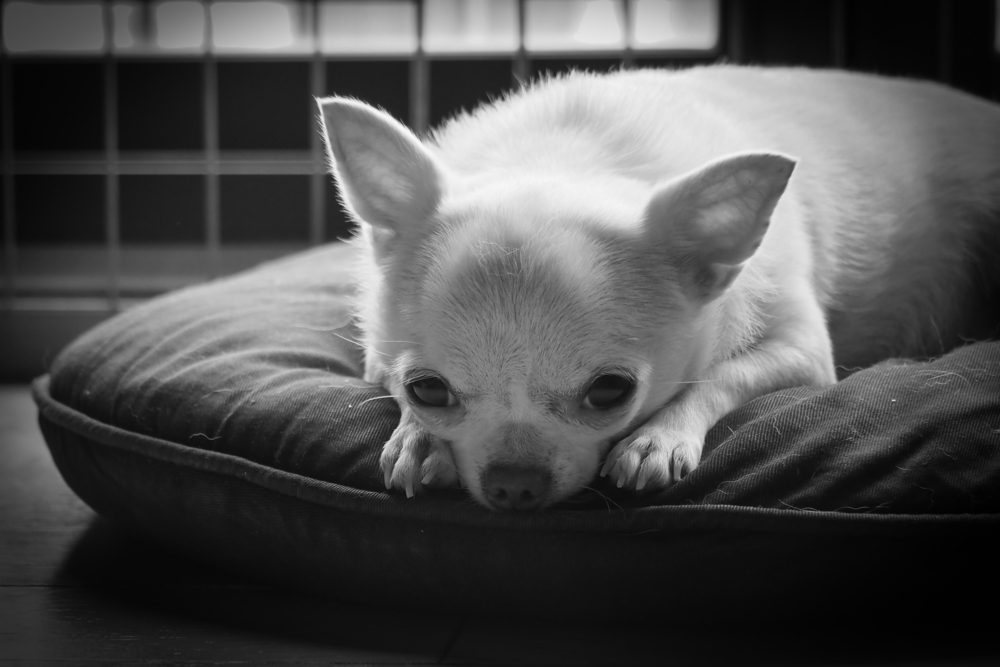The number of cases of cancer in dogs is rising at an alarming rate! But, is it really? Keep reading.
What is Neoplasia?
Some may confuse neoplasia and cancer. Neoplasia is the uncontrolled, abnormal growth of cells or tissues in the body, and the abnormal growth itself is called a neoplasm or tumor. ~ American Veterinary Medical Association.
Neoplasia or tumor can be Benign or Malignant. When neoplasia or tumor is malignant it is cancer. A cancerous tumor can invade the tissues around them and spread, or metastasize, to other parts of the body. A cancerous tumor is unpredictable and can grow slowly or rapidly.
Is cancer truly increasing in dogs? The answer, unfortunately, is no one really knows for sure. Cancer is not a reportable disease in pets, and there are no databases of cancer cases covering large enough populations in sufficient detail to make reliable statements about overall cancer rates.
However, I have personally asked many veterinarians in our local area and each and everyone says they have definitely seen an increase in cancer in dogs.
Cancer In Chihuahuas
It is said that about 1 in every 4 dogs will develop neoplasia or a tumor. Almost half of all dogs over the age of 10 will develop cancer. The good news is that smaller dogs are, for some reason, less likely to develop cancer. That does not mean, however, that your Chihuahua won’t develop cancer, he is just less likely to develop it than your lab might.

It has been noted that the number of dogs with cancer seems to be growing. Many veterinarians have said that they are seeing more cancer now than they did 5 years ago.
What Types of Cancer Do Dogs Get?
You may be surprised that skin cancer is the number one cancer in dogs. While skin cancer in humans is generally caused by UV rays from the sun, dogs can and do get skin cancer on parts of the body that is never exposed to the sun. Skin cancer in dogs is seen in the mouth and on the toes.
Although the effect of UV rays and whether they cause cancer in dogs is unclear, dogs do get cancer on the outer layer of their skin. This type of cancer is known as squamous cell carcinoma.
How To Protect Your Chihuahua From Skin Cancer
If you have a short-haired Chihuahua or have given your long-haired Chihuahua a hair cut, you should use sunscreen to protect their skin. Do not use human sunscreen. Human sunscreen can have ingredients that are harmful to dogs, such as zinc oxide. Zinc oxide is very toxic to dogs. Always use a sunscreen designed specifically for dogs.
Never shave your long-haired Chihuahua. A trim, especially a “sanitary trim” may be necessary, but if you are thinking of shaving your Chi in the summer when it’s hot — just don’t.
Other Types of Cancer in Chihuahuas
- Lymphoma is a cancer of the blood cell and lymph tissues. It may occur in many places in the body, including lymph nodes, spleen, liver, intestinal tract, and bone marrow.
- Bone Cancer also is known as osteosarcoma and is the most common bone tumor found in dogs. It can occur in any dog breed including Chihuahuas but is most commonly found in larger breeds.
- Hemangiosarcoma is a highly malignant cancer and can spread rapidly which results in tumors almost anywhere in the body. Most often, however in the heart and spleen. It is often in the advanced stages before it is diagnosed.
Can It Be Prevented?
Because the cause is unknown in most cancers, it is difficult, if not impossible to prevent it. There are some things known to cause cancer in dogs that you can prevent. Make sure you use sunscreen on your short-haired Chihuahua and/or when your long-haired Chihuahua gets a haircut.
Do not let your Chihuahua breathe second-hand smoke. If you smoke, avoid smoking in the house.
What Are The Signs To Look For?
According to The American Veterinary Medical Association (AMA), the following are what to watch out for as signs that your Chihuahua may have cancer.
- Abdominal swelling
- Bleeding from the mouth, nose, or other body openings
- Difficulty breathing
- Difficulty eating
- Lumps, bumps or discolored skin
- Non-healing wounds
- Persistent diarrhea or vomiting
- Sudden changes in weight
- Unexplained swelling, heat, pain or lameness
- Visible mass/tumor
Keep in mind, however, that dogs commonly develop lumps and bumps on their body and most are benign. These common benign lumps and bumps often appear as your Chihuahua gets older.
If you find a lump, don’t panic, the majority are benign, but be sure that you have your Chihuahua seen by a veterinarian as soon as possible to make sure.

